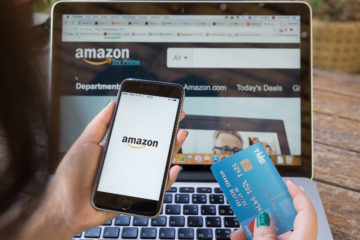Market Institute President Charles Sauer has a new article in RealClear Markets on a bill introduced in the Senate that would significantly alter the way consumers use everyday services like Amazon Prime.
Here’s an excerpt.
“The current leaders in Washington D.C seem to believe that business is like the creation story in the Bible. Their theory, at least judging by their public policy solutions, is that businesses are just magically created out of the ether, and at creation are either failures, mildly successful, or monopolies. This mistaken view of commerce is increasingly revealing itself through poor legislative proposals.
For instance, there has been a recent spate of bad bills attacking so-called “Big Tech”, but there has been very little talk about how these changes will affect the next generation of innovators. Sen. Amy Klobuchar’s (D-Min.) S. 2992 would put an end to Amazon’s Prime service by restricting several of the business practices that make Prime possible. These restrictions would prevent Amazon from guaranteeing two-day delivery for products bought from a third-party seller. This would be bad for Amazon, but that isn’t the real issue. The real problem is that small companies that use the Prime program in order to deliver their products to households around the country will lose that ability, thus making it harder for these companies to attract new consumers and grow their business.
While that would be bad, it isn’t even close to the worst result of the Klobuchar bill.
The real problem is that the bill would impair the investment market in new businesses. The goal of any small business owner is to become a big business owner – or rich. The pathway to growth, for those not already rich to begin with, is through investment. The Klobuchar bill will logically put a chill on investment in tomorrow’s innovators by limiting their upside in the form of returns.
If an inventor creates a new and better mousetrap, all of the mousetrap sellers might want to buy that company. However, Sen. Klobuchar’s bill restricts the biggest buyers in the room from bidding. Therefore, the demand is dramatically cut, and the price for the company is dramatically reduced. Investors understand these market changes and will either invest less, or ask for a bigger percentage of the concept they’re committing capital to. With less investment available, innovators are less likely to innovate.
This seems to be the opposite effect that politicians want, but it is the only effect possible under the current proposals.
There is a correct approach though: aggressively support innovators and investors. One idea is to remove or reduce capital gains taxes. Higher capital gains rates mean fewer investments because of lower potential returns. That means that there is less capital seeking out the next unknown entrepreneur or unproven business model like Uber.
If politicians don’t like Amazon, Facebook, Google, or any company of any size, the best public policy solution is to make sure that it is as easy as possible to create a new company, find investors, and grow without government restrictions to worry about in order to compete with those companies.”


